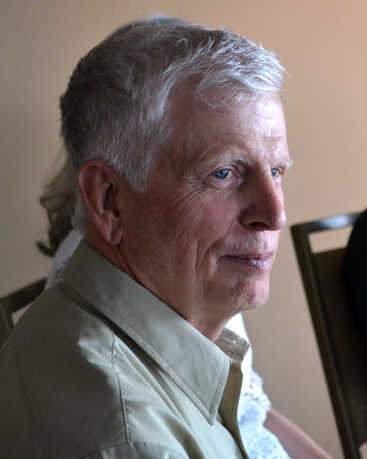DENVER — The upcoming wildfire season across the U.S. isn’t expected to be as bad as last year’s infernos, when a record 15,800 square miles burned, the nation’s top wildland firefighting official said Wednesday.
But parts of the nation should expect a rough season after a warm, dry winter or because of long-term drought, U.S. Forest Service Chief Tom Tidwell said.
Southern California, other parts of the Southwest, Alaska and Montana are all vulnerable, he said.
“So where we anticipate the severity of the fire season will not be at the same level as last year, we still expect to have some areas that will be really active,” Tidwell said.
Tidwell discussed the fire outlook with The Associated Press four days before the federal government issues its wildfire outlook for the summer season. He was in Denver for a conference on forest health.
California is vulnerable because much of the state remains in a drought, despite an El Nino weather system that brought near-average snowfall to its northern mountains. Wildfires have already broken out in Alaska after a warm winter with below-average precipitation.
Slightly more than half the land scorched by wildfires last year was in Alaska, according to the National Interagency Fire Center, which coordinates firefighting nationwide. Washington and Oregon accounted for 18 percent.
The Forest Service, the nation’s primary firefighting agency, spent a record $1.72 billion on firefighting last year.
The overall bill for wildfires, including prevention programs and the cost of putting crews, equipment and aircraft on fire lines, is consuming a growing share of the Forest Service budget. That has forced cuts in forestry research, campground and trail maintenance and other areas, Tidwell said.
The Obama administration has been pressing Congress to pay the cost of fighting the worst fires from natural disaster funds, rather than the Forest Service budget. Tidwell said the largest 1 or 2 percent of wildfires account for about 30 percent of the costs.
Congress has not agreed to the change, but it did approve an additional $520 million for fighting fires this season, Tidwell said.
He said climate change is making wildfires worse, heating up the air, drying out forests and extending the wildfire season by an average of 78 days since 1998. A growing number of homes at the forest’s edge, which firefighters call the wildland-urban interface, also drives up costs by forcing managers to concentrate crews and equipment to protect communities, he said.
Tidwell said state and federal agencies need to thin those forests to a more natural state to prevent fires and make them easier to fight. Researchers say decades of over-aggressive firefighting have left forests dense with living and dead trees and more prone to deadly mega-fires.
With a chuckle and a smile, Tidwell defended Smokey Bear, his agency’s memorable mascot, from allegations of making things worse by portraying fire as evil instead of part of the natural cycle that kept forests healthy. Smokey’s original message, “Only you can prevent forest fires,” has been updated to “Only you can prevent wildfires.”
“Really, Smokey was just talking about those human-caused fires which actually occur at the wrong time of the year, not where the natural fire occurs,” Tidwell said. Those are the fires that the Forest Service still wants to stop, he said.
“Smokey Bear gets no blame for the situation we have today,” he said.

